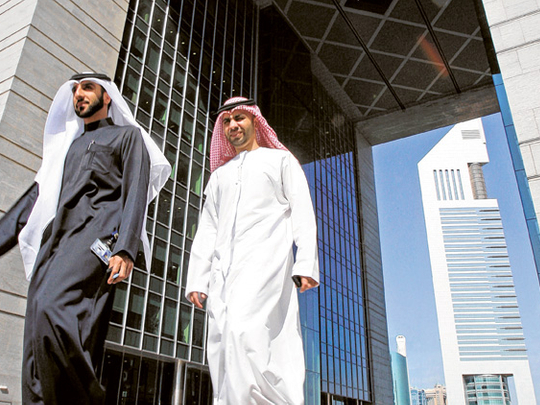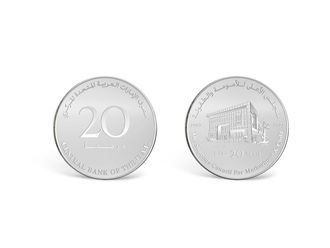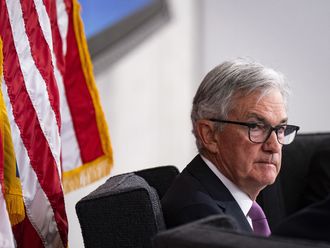
Dubai: The global financial crisis saw the demise of several powerful international banking institutions across the world, and the survivors drastically reduced their international operations. Despite such a severe squeeze on the international financial services industry and the negative publicity Dubai attracted following the credit crisis, there has been no let-up in the number of new international banks starting operations in the Dubai International Financial Centre (DIFC).
"We have not seen any big institution shutting operations here following the crisis. On the contrary we saw many large international banks opening their offices. Currently we are working on a plan to reduce the cost of doing business from the DIFC. We are looking at a range of measures such as reduction in rents, fees and service charges," said Abdullah Al Awar, the Chief Executive of the DIFC Authority.
Even with the collapse of Lehman Brothers in September 2008, the bank did not end its operation in the DIFC. Rebranded under the Nomura nomenclature, it continues operating. Global level restructuring of some of the institutions saw some amount of downsizing across many institutions. Dresdner Bank closed its offices at the DIFC after its merger with Commerzbank, which already had space in the centre.
Despite a few such setbacks, new institutions continue to open business in the DIFC with a fresh wave of emerging market banks leading the pack. Last month, Baring Asset Management (Barings), the international investment management firm, opened a representative office in the DIFC.
"Our new office demonstrates our commitment to these markets and our desire to build on the many valued relationships that we have throughout the region. We believe that establishing an office in the DIFC will be a very effective way to achieve our objectives," said Rob Lay, head of Europe, Mena and Alternatives of Barings.
The DIFC's newfound focus on attracting institutions from emerging markets is clearly paying off. There is a growing thinking within the DIFC administration and the financial services industry in Dubai that the region needs to deepen its economic ties with emerging markets, especially those in Asia.
"There is an urgent need to refocus the region's economic relations with the emerging markets especially the Asian giants such as China and India which are the region's trade leading partners both as importers of oil and exporters of technology and finished goods," said Dr Nasser Saidi, Chief Economist of DIFC.
Upward momentum
Indian banks and financial services companies were relatively late entrants in the DIFC. During the last two years, momentum has picked up in the number of Indian firms joining the DIFC's financial services community. Currently, there are more than a dozen Indian institutions ranging from banks, asset management companies and financial advisory services that are operating from the DIFC.
"Over the past few years, we have sought to enhance our relationships with the financial services sectors of major emerging Asian markets like India. The response has been very encouraging," said Al Awar.
The new emerging market focus of DIFC was highlighted at the inaugural Menasa Forum, a high-level finance and business conference focused on the Middle East, North Africa and South Asia (Menasa) region hosted by the Centre in April this year. At the Russia Calling investment forum in Moscow last month, Al Awar called on Russian banks join the DIFC financial services community.
A few Russian institutions including VTB Capital, the investment banking arm of the second-largest state controlled bank in Russia is present at the DIFC. VTB Capital opened its investment banking operations from the DIFC in last June. In a recent interview with Gulf News Yuri Soloviev, VTB Capital's chief executive said the Dubai office will be a two way channel for capital flows between the Middle East, Russia and the wider CIS region.
"We have already closed a very successful transaction with the Oman Sovereign Wealth Fund in the Moscow real estate sector and we are hoping to sign similar deals with Middle East investors. Through our DIFC operations we offer investors from the Middle East our capital, execution capabilities, local expertise and wide presence in the market," said Soloviev.
In its emerging markets push, the DIFC is attracting more institutions from across Asia, Latin America and Russia. State Bank of India (SBI), the largest banking group in India has a Category 1 banking licence from the regulator, the Dubai Financial Services Authority (DFSA) in December 2006.
Bankers say the global financial crisis and the subsequent deleveraging by companies have not impacted the demand for finance from the UAE and Gulf-based companies.












